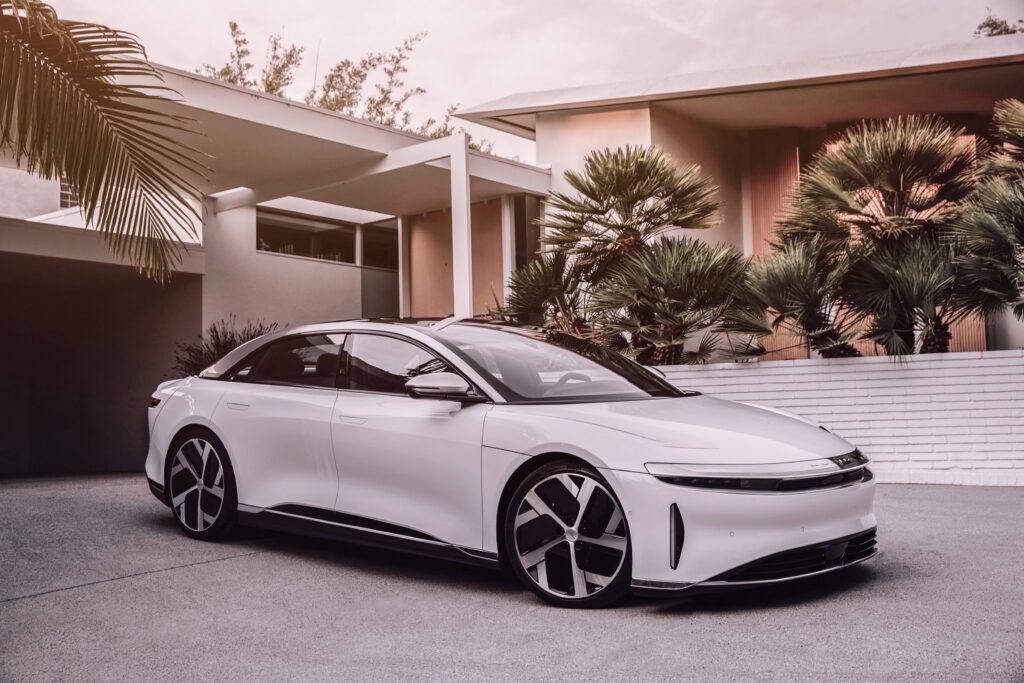My very own Hyundai IONIQ 5 has a special trick up its sleeve. In fact, even Tesla can’t claim it. In 2022, very few electric cars are engineered with 800-volt architecture. While still an outlier, all signs point towards an auto industry heading in the direction of faster charging, better efficiency, and smaller battery sizes – all of which are unlocked by promising 800-volt electrical systems in EVs.
800-Volt Electric Powertrains Bring Faster Charging and Engineering Benefits
The mass adoption of electric vehicles largely depends on the ability to find real solutions for a few ownership challenges for today’s EV drivers:
- Charging is too slow
- Range is not enough
- Batteries are too expensive to replace
Most electric vehicles in 2022 are built on 400-volt systems, but these systems have limits. Indeed, some automakers are quite happy with their 400-volt EV platforms. Tesla manages to find other ways of mastering efficiency and power delivery, and has not mentioned plans for a voltage upgrade. One BMW senior engineer called settling with a 400-volt platform the “best compromise”, but not everyone agrees.
800-volt systems can deliver double the power through the same current, or if desired, the same power through half the current. The result is roughly 50% faster charging for the same battery size. As a result, batteries can be made smaller and overall weight is reduced, increasing efficiency and ideally lowering the cost of the vehicle.
Would a car need a massive battery with a 500-mile range if it can charge a smaller battery that’s good for 250 miles in just 15 minutes? What is that smaller battery was A LOT cheaper?
Which Electric Vehicles Use 800-Volt Architecture?

In 2022, just a few electric vehicles use 800-volt systems for power delivery and charging.
Of particular interest is the different paths taken by Ford and GM for their upcoming electric trucks. The F-150 Lightning is built on 400-volt architecture, while the Chevrolet Silverado EV is jumping to 800-volt architecture, and the result is much faster charging speeds for the Chevy. Will this matter to consumers, or will brand loyalty win out?
Why doesn’t Tesla use 800-volt charging? We’re not sure, but clearly they’ve found success with their existing 400-volt architecture.
Solid-State Batteries Approach Production

Fortunately, a whole host of solutions are uniting to offer a better way forward for EVs. And it’s not all about charging speeds. Solid-state batteries are finally approaching real-world usability following decades of research and development. For the better part of the last decade, $100 per kilowatt-hour was the affordability target for battery development. That goal was reached, but the latest raw material shortages are sending prices back up, and electric car prices have gone up accordingly. The U.S. Department of Energy thinks that $60 per kilowatt-hour is within reach, however it’s increasingly looking like solid-state batteries may offer the only path to such low-cost batteries.
Toyota says it will be the first to bring a solid-state battery into a production vehicle. In typical Toyota fashion, their solid-state battery will debut in a hybrid powertrain rather than a full battery-electric vehicle. It looks like the world will see what solid-state battery chemistry is capable of in 2025.
Innovation Continues at Lightning Speed
Faster charging, better range, and (hopefully) lower prices are promised time and time again with every new EV model announcement. 800-volt architecture and solid-state batteries are the headlining developments that automakers are working on behind the scenes. We didn’t even touch on new battery chemistries, manufacturing methods, and electric motor breakthroughs in the works. We’ll have to save that for another day, as there’s always something new to talk about in the EV space.
But the promise of faster charging and energy-dense batteries begs the question: would you take faster charging over more range? It’s looking like that will be the EV debate of the decade. What are your thoughts? Let us know in a comment or over at the CarEdge Community Forum. What matters most when you head out on a journey?








![10 Cars with the Lowest Cost of Ownership [2026 Data]](https://caredge.com/wp-content/uploads/2026/02/2026-Toyota-Corolla-Hatchback-400x250.png)




0 Comments